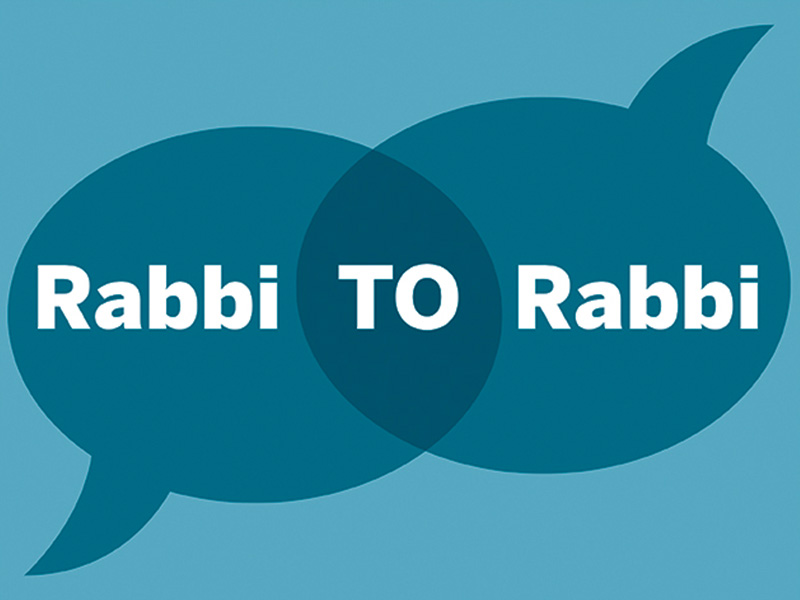Reading our individual and collective cries for leadership into the Passover story can help us move toward our own ‘land of freedom’
Rabbi Yael Splansky
Holy Blossom Temple, Toronto
Rabbi Mark Fishman
Congregation Beth Tikvah, Montreal
Rabbi Fishman: Liberation. It’s such a loaded term.
On Pesach, we read in the Haggadah that “had God not taken our ancestors out of Egypt, then we, our children, and our children’s children would still be enslaved to Pharaoh in Egypt.” It’s a bold claim. But I instinctively feel that it’s not meant to be taken literally.
Rather, we are being taught that there is a kind of slavery that consists of an emotional and spiritual state. This cognitive prison is what we were once redeemed from. The lesson is that if we were given the spiritual and emotional ability to be freed from slavery before, then each of us has it within our abilities to be freed from what holds us back today as well.
Rabbi Splansky: Your comment reminds me of the relationship between the Wise Child and the Simple Child. The Wise One asks: “What is the meaning of the laws, statutes and rules which God has commanded?” The Simple One asks: “What is this about?” Most Haggadahs answer the Wise with details of Halachah and the Simple with talk of miracles and wonder.
But in the Jerusalem Talmud, Rabbi Chiya suggests just the opposite. The Wise One demonstrates an ability for critical thinking, so Rabbi Chiya wants to awaken her capacity for spiritual pursuits. He redirects her to behold the miracle – “the mighty hand” of The Eternal God who brought us out of Egypt. By contrast, the Simple One is naturally open to God’s presence in the world, so Rabbi Chiya cultivates in him an intellectual approach, instructing him in the laws of Pesach.
The message is that both mind and spirit are required for any act of liberation.
Rabbi Fishman: My constant hope with all Jewish texts is that those learning them can pause for long enough to actually internalize them. So often I see people breezing through learning a Jewish topic and approaching it intellectually. Yet Pesach is the season where we are enjoined to experientially live through these lessons. My picture of a successful seder is one in which those around the table pause and ask themselves real and difficult questions.
Slavery and liberation are such powerful themes, because they apply to each one of us.
The question that always needs to be asked, therefore, is: how does this affect me? How might the story of Passover help each of us move forward towards our own “land of freedom”?
Rabbi Splansky: That is the very definition of the Rebellious Child. Stubborn, stuck in his own narrow identity, the Rebellious One does not have faith in his own ability to advance into the wilderness. Because he needs control, he limits himself and his capacity to grow.
That is what it means when the Hagaddah sternly warns: “Had he been there, he would not have been redeemed.“ It’s a kind of spiritual immaturity that keeps the rebel in chains.
The only way to soften the lines he draws between “me singular” and “you plural” is to love him even more.
Rabbi Fishman: Perhaps the most powerful observation about the Exodus is that the Jewish People were not ready to leave Egypt. In fact they needed a pushy outsider, Moses, to prod them toward their destination.
I think the Exodus story of liberation is teaching us that in our own lives, we all need a Moses figure who can push and pull and prompt us to move ahead. In a sense, the question at this time is less “Can I emerge from my sense of being stuck?” and more, “Who can guide me to the next stage of the journey?”
If we can have the courage to confront these question, then I believe we will have a successful Pesach.
Rabbi Splansky: The world is indeed desperate for good leadership. But even before Moses enters the scene as our leading man, the people show initiative. The trigger for the Exodus was the people’s cry.
In 400 years of slavery, we did not cry out to God for help. Our liberation begins with that cry. The people were finally united in their suffering – ready, willing and able to be redeemed from it. The collective cry is the pivot point in our story, the invitation for leadership, both human and Divine, to emerge.
